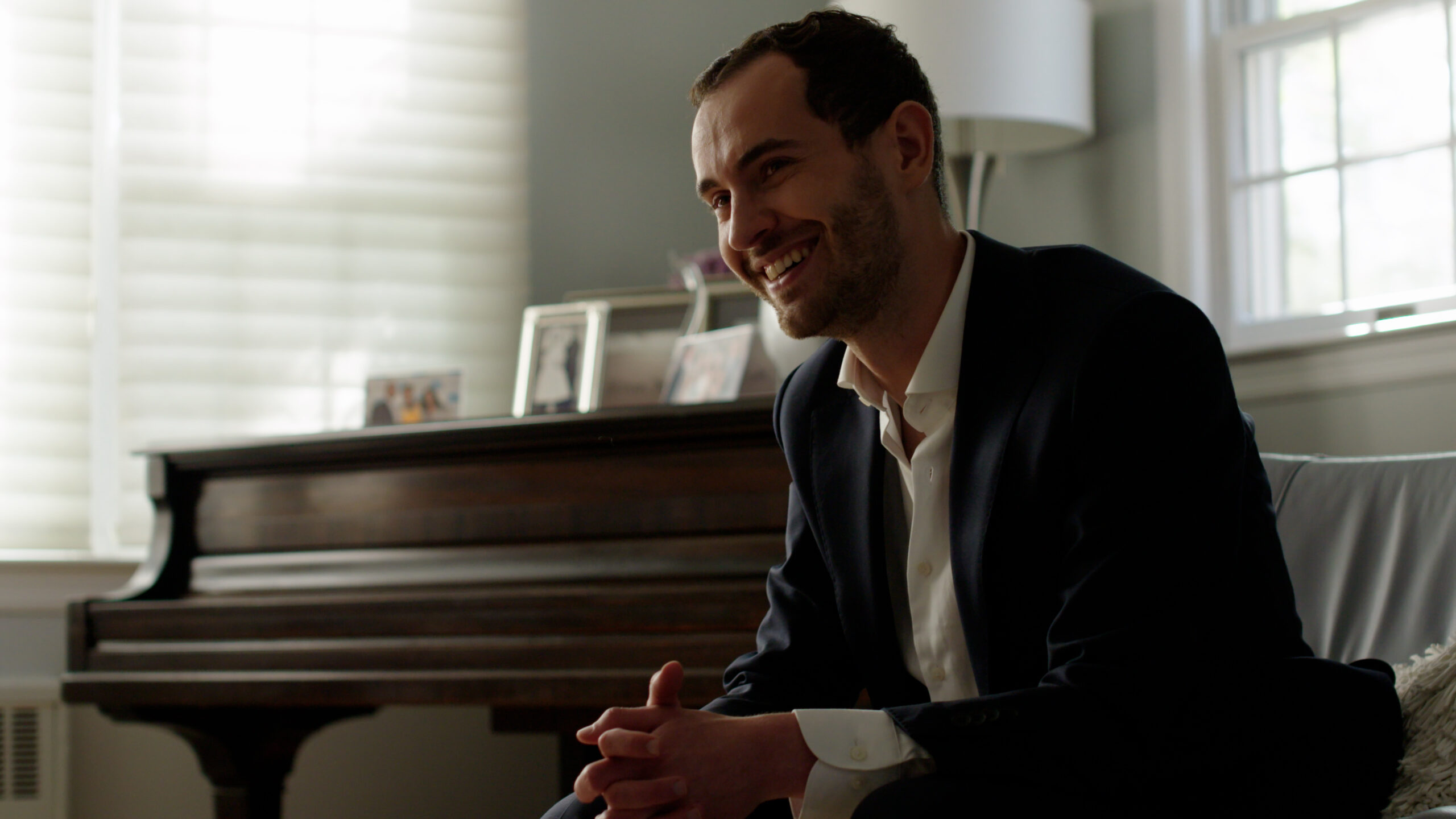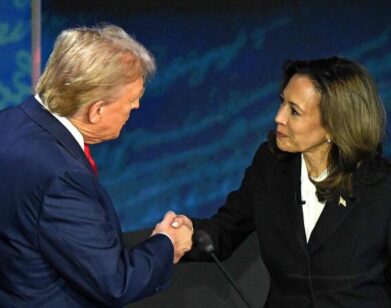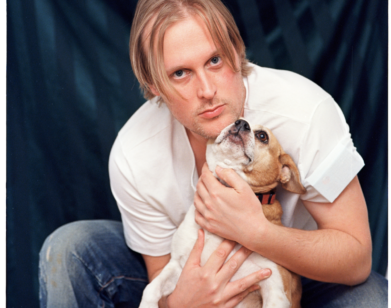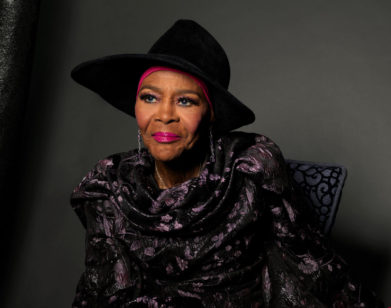POLITICS
Meet Zak Malamed, the Millennial Looking to Unseat George Santos
Zak Malamed is an anomaly. He is a young person filled with hope and convinced that things can really get better. It’s strange. We grew up less than 20 miles from each other. We’re both Jewish. We both had our political awakenings at a young age, after 9/11 forever changed our city and cast a pall over this country’s politics. And yet, I do not feel anything like him. He sounds like a politician from a different era, a pre-2016 one, in which terms like “blackpilled” and “ACAB” and “doomscroll” and “schizomaxing” and “my rent is being increased by $3,000” were less common. Which doesn’t mean he’s not affected by those things—he too puts a third of his paycheck toward rent, as he told me earlier this month.
Zak is running for New York’s 3rd Congressional district, which is currently occupied by the person who perfectly encapsulates the near-hallucinogenic turn our politics have taken. George Santos, elected to Congress last November, is a serial liar, a con man, a fraud, and a one-man media circus. Comparatively, Malamed feels old-school, almost innocent in his normalness, as if he were imploring us to remember a time when things were less, uhhhh, weird.
The question is, will that work? He speaks like a politician, easily slipping into the kind of Obamaspeak that makes you feel hopeful before you realize you’re not sure what’s actually been said. And it’s apparent that much of the electorate is over this—they’ve either defected to the psychosis of the far-right, or become cynical, post-Bernie, lost boys and girls and thems, unconvinced that our governing institutions can fix the obvious and pressing crises of our era. Malamed wants to restore that trust. I wanted to know the specifics of Malamed’s politics, but I mostly wanted to know: how to you convince a populace fractured into a thousand million pieces (fractured at both a societal and individual level; our psyches ever-more held together by off-brand duct tape) to believe in Normal Politics again?
———
P.E. MOSKOWITZ: Where are you right now?
ZAK MALAMED: I’m at home in Great Neck.
MOSKOWITZ: Cool. I know it’s an annoying first question to ask, but I want to know a little bit about you, in your own words. How’d you get to this point, essentially?
MALAMED: Well, I’m a third generation resident of Great Neck. My grandmother moved here as an immigrant over 60 years ago, my grandfather came here from the city to raise a family, really because of that promise of public education. My mother chose to take great financial risks to raise her children here, too. I’ve always just been really proud of my hometown. It’s the hometown of F. Scott Fitzgerald. It’s where the Marx Brothers lived. Francis Ford Coppola came from here. Andy Kaufman from SNL. My junior prom date is now on SNL.
MOSKOWITZ: Oh, wow.
MALAMED: Sarah Sherman. She was my neighbor. I think it’s one of the greatest privileges to be able to grow up in and around the New York area because of all the opportunities it affords a young person like myself. That’s part of why I want to be here now, because of all that pride that I had growing up here, though it’s a little bit stained by who’s representing me in Congress. As much as we can do to erase that stain and restore pride to this community and this district, that’s what I’m all about.
MOSKOWITZ: How did you come to politics and, specifically, to deciding to run right now?
MALAMED: Truth be told, my first-ever trip to Albany was in 2009 with my then-assemblywoman, Michelle Schimel. I went to Albany to advocate for gun safety with New Yorkers Against Gun Violence. Schimel offered me an internship and I interned with her for four years. I knocked on my first doors here in my hometown of Great Neck. It was actually the first time I experienced a red wave; we lost the county executive seat here just after President Obama was elected to office, and so all that hope that came out of 2008 came crashing down, but we rebuilt and we restored and my assemblywoman still won. I grew up in New York in Great Neck, in the wake of 9/11. It’s one of the most formative moments of my life, and it was very easy as a young person for your politics to be governed by fear. It was working for her where I learned what it was like to fight for something. She was ahead of her time fighting for climate legislation, for gun safety. I didn’t realize how personal of an issue that would be. I didn’t like seeing my peers across the country gunned down in schools, but I didn’t know that in 2020 I’d lose a friend to gun violence.
MOSKOWITZ: Oh, wow.
MALAMED: I didn’t know that my siblings would live in fear every day, one sister getting locked down at her school because there was a gunman on campus. So it’s fighting not against those things, but for a safer future that values public education, the public education that had my grandmother move here over 60 years ago.
MOSKOWITZ: Growing up, did you see yourself in this position? Did you have aspirations to be a politician. What did you care about then?
MALAMED: Well, when I was about seven years old, I wanted to be a Sportscenter anchor and then eventually politics really took hold in my life. I’d wake up every morning after 9/11 and watch the news and see the terror threat level on the bottom right-hand corner of the screen. But in addition to seeing all that I saw on television, I also saw my relatives and my neighbors help rebuild New York, help clean up ground zero. It was seeing people serve in the wake of 9/11 that made me want to serve in some way. After my internship with the assemblywoman, I did leave the political ecosystem and worked directly on education advocacy efforts and launched a national education organization that helped students advocate for equity in education. I worked for a philanthropist on one of the largest efforts to rethink the American public high school. I worked at one of the largest tech companies investing in the next generation of civic leadership at that company. And it was really actually sitting at the office at the tech company, there are monitors around the office showing the news of the day and I see images of children getting detained at the border and separated from their families. It was in that moment that I said, “What am I doing?” I felt like going back to politics made a lot of sense and that’s where The Next 50 started.
MOSKOWITZ: Do you want to run for president someday?
MALAMED: Look, I’m running for Congress now and that’s daunting enough as a 29-year-old running for the first time. This wasn’t in the plans for this year. It was actually last year when George Santos won the seat, I had some neighbors, community leaders call me up and say, “Zak, it’s time to put up or shut up.” And I thought about it, but I always imagined if I was ever going to run, I was going to plan it out and choose my day if it were to make sense for me in the course of my life. And I eventually came to realize that you don’t get to choose your moments to serve. In 2021, the town of North Hempstead, where I live, had its first red wave in 30 years, seven days before George Santos was elected to office. I was standing in line for 20 to 30 minutes to vote in a library election to make sure that book banners didn’t take over my home libraries, and we won by seven votes. And the reality was that the Democratic Party that had been in power here for the better part of my life, all of a sudden it wasn’t working and people were looking for something new. It wasn’t like the Democrats who had run for seats in this area were losing by one or two points. They were losing by eight points, in a district that had only elected one Republican beforehand. It was in 1980 when Ronald Reagan was elected president during the Reagan revolution, so it’s clear that we need new and fresh leadership. I’m fired up about this, because I never expected that my hometown would need to defeat the extremism that I was fighting in Nevada, Michigan, Georgia, Wisconsin.
MOSKOWITZ: I think that soul-of-a-district thing is very interesting. We grew up pretty similarly. I grew up in the city, but we’re around the same age. I’m a little older, Jewish, and 9/11 also a very formative moment for me in terms of getting interested in politics. I have family in upstate New York and a lot of them have become MAGA weirdos. What has happened that has made people embrace those politics?
MALAMED: I want to come back to that politics of fear because the fear is real. I feel fortunate to have found a politics of hope and chosen to pursue that politics of hope, and I hope that my candidacy will introduce people who have felt like their only option was a politics of fear to pursue an option that could move our community forward in a more positive direction. I want to try to bring people to the table around the things that unite us, like the desire for public education, public safety, the desire to keep costs low. No matter your political persuasion in this district, I hope you care about keeping costs low so your children can move to the district and raise a family there one day too. Unfortunately, many folks have really been engrossed by that fear, especially in the isolation of the pandemic.
MOSKOWITZ: I am fully on board with your message of hope. But on the progressive side, the left, whatever you want to call it, there’s a lot of division, too. If you’re preaching hope, a lot of people are going to start saying things like, “Why don’t you reign in the police department? Why don’t you do universal rent control?” So I’m wondering if you have a response to that.
MALAMED: I got my start in advocacy and activism. I was in Albany pushing for the greatest gun safety measures that we could possibly ask for. I then continued that work in education advocacy. When I’m elected to Congress, my job will be to take that activism journey to inform my political and legislative actions. My job first and foremost is to vote my district, to support my district, to support my community. I don’t think that that leads to much compromise on my values. There are going to be other members of Congress, though, who are working to vote their district and their district’s going to be very different than our district and I’m prepared to have those tough conversations. Hopefully, a lot of the time, those interests are going to be aligned, [but] sometimes those interests might be divergent. I think the perfect example in this district, actually, is the elimination of the SALT deduction. In many places across the country, the SALT deduction doesn’t carry much relevance because there aren’t high-stated local taxes. In New York and in many other major metropolitan areas across the country, the SALT deduction is a working class issue. People can’t afford to make ends meet, so I’m going to need to fight for that every single day. People’s money doesn’t go as far today as it used to, and that’s in part because Trump eliminated the SALT deduction, so that’s the kind of mindset that I bring to this work.
MOSKOWITZ: Another issue that matters to a lot of people, including myself, is how expensive housing is, whether you’re renting or buying. It feels like everyone cares and is extremely stressed out by it, but that there’s no real, active work being done on a political level to fix it.
MALAMED: I think about this a lot because, well, I spend a third of my paycheck at least on this every month, sometimes more. Cost of living is expensive and the supply of housing for our generation is short. When it exists, it’s exorbitantly high in cost. So we need to get creative around how we develop and build our communities. What does it mean to bring research partnerships into communities so the next generation of industries can build and thrive right here in New York’s Third Congressional District, a 20-minute train ride out of the heart of Manhattan? And then how do we create federal and state incentives to make sure that the communities are brought into the development process? I’ve seen efforts from the state government that originally tried to impose development on a community, rather than build with the community and incentivize the community to build. Great Neck doesn’t look like the Great Neck I grew up in. It’s because there’s new development here, but we need to make sure that development isn’t imposed upon folks, and I think the state and federal government plays a role in incentivizing that.
MOSKOWITZ: Going back to that question of hope, which I feel is really central to all of this. Back in 2020, people had more hope that politics could really change. Whether you agree with someone like [Bernie] Sanders or not, there was this sense of a big shake-up happening. Now, just anecdotally amongst friends and from what I’ve seen, it feels like people are more cynical about the possibility of real change through electoral politics. I’m wondering, how do you reinvigorate that hope? And why did it disappear?
MALAMED: What I appreciated about the President when he was elected in 2020 is how he said he wanted to be a bridge to the next generation of leaders. I have deep gratitude for him winning in 2020 and defeating all that Trumpism is and represents. But at the same time, people are going to find hope in that next generation of leadership. They see that when we elect the first Gen-Z member to Congress. They see that when we elect a Jewish man and a Black man to the US Senate in the state of Georgia in 2021. And I believe that if we put the next generation at the forefront of a lot of these legislative accomplishments on climate, infrastructure development, moving us to a greener and cleaner economy and defeating extremism in the process, that’s where people are going to start to find hope. I firmly believe through my work in The Next 50—we back 50 candidates, 50-years-old and under, every two years in some of the most competitive districts and states in the country. We had an 80% success rate last year as the number one supporter of young Democrats. Now, I’ve chosen to step up myself, but of the 50 folks that we backed, 40 of them won and they built legislative majorities across the country that are leading to historic legislative change in states like Michigan and Minnesota. I want to do that right here in New York, and I believe that there is nobody running for this seat right now who will do more to invest in the local, state and national Democratic Party than I will. I think when we do that, when we elect folks to office who look like the communities that they represent, people will find hope in their politics again.
MOSKOWITZ: I think part of the cynicism is just how bad things are right now, how it feels like we’re in crisis almost all the time.
MALAMED: I get it. I get how you open up your Instagram or your Twitter feed or your TikTok and you see one travesty after another, whether it’s in your hometown or it’s all the way across the country or halfway across the world. What I’ll say is, the fact that we’re confronting them as a generation and dealing with those challenges and aware of those challenges, that’s a good thing, that gives me hope. The fact that we have higher young voter turnout than at any other time in my lifetime, that gives me hope. People are showing up and sustaining their voting rates, cycle after cycle, even in midterm elections, even in odd-year elections. I want action on climate and gun safety as quickly as the next person, and we are making progress. We need to tell the story of that progress, but we need a generation of leaders in office that are going to accelerate it.
MOSKOWITZ: Now for a really hard-hitting question. Do you like the Mets?
MALAMED: I went to 20-plus Mets games a year with my father growing up. I’m definitely a Mets fan. I’ll tell you, one of the most inspiring moments of my life, back to 9/11, was when Mike Piazza hit that home run. I think it was in the first game back after 9/11, against the Atlanta Braves. It stays with me all the time. Every time I go to a sports game, I’m just hoping to capture just a sliver of that emotion that I saw on television when he hit that home run.
MOSKOWITZ: Why are the Mets doing so poorly this year?
MALAMED: Sometimes, whether it be in politics or in sports, you can’t spend your way to success, and I think the Mets are learning that right now. The Mets owner is actually from Great Neck.
MOSKOWITZ: Oh, I didn’t realize that. What do you do for fun?
MALAMED: Well, I have visited over half of the country’s national parks, and I have just this deep appreciation for the natural beauty that our community and our country has. I love music, I love to dance. I love everything from Earth, Wind and Fire to Lynyrd Skynyrd to Outkast. My music taste runs the gamut. My first concert, though, was NSYNC in 2001 at Giants Stadium.
MOSKOWITZ: Amazing.
MALAMED: If you want to get me going, play “Dirty Pop” at a party.
MOSKOWITZ: Do you go out dancing?
MALAMED: These days I have less opportunities, but I have a handful of friends who are fortunate to be getting married these days and being able to celebrate their weddings is always a great opportunity to dance.
MOSKOWITZ: What did your parents do when you were growing up?
MALAMED: In the earliest years, my father was working in the garment industry, and as that industry really offshored, my father made a sudden transition to working in technology sales. My mother was originally a kindergarten teacher and then became a full-time caretaker. She, unfortunately, in the middle of my childhood, had two best friends and actually eventually three best friends come down with cancer, and so while she was taking care of our family, she was also taking care of their’s. She also got her degree of mental health counseling and just graduated from Long Island University and is now doing that right here at home.
MOSKOWITZ: Speaking of mental health, that’s something I write about a lot and it feels like people are really struggling right now with depression, suicide rates, quote-unquote “deaths of despair” from fentanyl and things like that. What do you see as the root cause of that?
MALAMED: It’s not one thing, but as someone who worked for a social media company, social media definitely plays its role there and I want to make sure that we work to curb its negative effects. And then the cost of living, this comes back to that in so many ways. People need to be able to make ends meet, to put food on the table and make rent every month, and that’s feeling less and less attainable. I think all of those factors, combined with the world shutting down and our lives becoming quite insular, have really spurred a mental health crisis. The rapid change in industries, too, is scary to people. So we need to make sure that we normalize mental health care. You saw John Fetterman and a handful of other members of Congress speak about their experience with mental health. I’m not going to be shy to talk about the importance of taking care of oneself and having access to the care that you need. For our parents and grandparents, it wasn’t the norm for their generation. For us, people don’t even want to date you if you don’t have a therapist, right?
MOSKOWITZ: Yeah. Well, tell me if I’m going too far, but have you ever struggled with any of that stuff?
MALAMED: Yeah. When I was in elementary school, it was the first time I had a therapist because I had been bullied in school. I’m especially grateful to my mother for having the foresight to know that this would benefit me in the long run, developing the skills to talk about my emotions. It’s definitely been a dominant narrative for me, my family, and my friends for the bulk of my life, and I find great comfort in talking about it with my friends on a Friday night.
MOSKOWITZ: Tell me about your opponents, your pitch, why you’re running against them.
MALAMED: Well, first of all, this is a seat we can’t afford to lose. This is a seat that could decide whether or not Leader [Hakeem] Jeffries becomes Speaker Jeffries. Unfortunately, when you look at the field, you see folks who’ve been rejected wholesale by the local Democratic Party over the last three to four years. They’ve lost to people who may end up being the nominee on the other side if it’s not George Santos, and that’s not a risk we can afford to take. People want to see the bridge to the next generation of leadership on the ballot and I’m that person. I’ll be a strong representative of the Democratic Party, but also represent this community first and foremost. To me, there’s nobody else in the race who’s in a position to do that, and so that’s why I decided to step up and run. I believe that, given my history of defeating MAGA extremism across the country, I can take those learned experiences and bring them here at home to win the seat, defeat George Santos and his cronies. Who, by the way, endorsed him not once but twice. They took pictures with him over and over again, and the only time that they abandoned him is when it was no longer convenient. They knew about his lies and they still stood with him.
MOSKOWITZ: Do you have a read on George Santos psychologically. What’s going on there?
MALAMED: That’s not my profession. That’s my mother’s profession.
MOSKOWITZ: One last thing I would like to know is where to get a good bagel on this side of the East River, because I always go to Russ & Daughters in Manhattan, but I live in Queens.
MALAMED: Oh, man. We need to go on a bagel tour because my opinion is that Long Island has the best bagels in the whole New York metropolitan area.







